There seems to be a large development presence here. Among others, Australia Aid and NZ Aid offices, and a Taiwanese milkfish breeding project similar to what we saw in Tuvalu. One of the main issues is water – both for us and the I-Kiribati. While there are rainwater harvesting projects underway these work on the provision that there is rainwater to harvest. However with such close proximity to the equator rainwater is infrequent – and unfortunately population is dense – around 40,000 people in Tarawa. Water is everything – both in the sense of drinking, and in irrigation for crops (the only fresh produce we have found since we arrived is some bananas, and small pumpkins for $12AUD – no thanks). It is cheaper to buy imported meat products than local vegetables. We did manage to buy some New Zealand carrots, which is ironic and really bad of us as we are trying to buy local produce where we can. The reality is that here we can’t.
Anyways all of this has got me thinking about desalination and its place in our future world. While it is energy intensive it seems like a practical solution for these islands surrounded by miles of salt water, and very little fresh. NZ Aid recently completed a solar powered desalination project in Tuvalu which is apparently not operating at the moment. I need to find out more about the story there. Before Robin and I left we looked into getting an Open Ocean desalinator on the boat so that we didn’t have to collect rainwater. In the end we decided the $5000 (yikes) could be better used on something else, and the idea of collecting rainwater seemed manageable. Everything was going fine until we got closer and closer to the equator and it stopped raining! Of course everywhere there are people, there is water, but in some places like Kiribati you feel like water is so precious you don’t want to take it. Considering at the moment we are using 10 litres of water a day between 3 of us (just a little more than what we are drinking) I don’t think we are being too demanding.
In saying this it feels good every now and then to feel a connection between your livelihood and the environment. Generally growing up in New Zealand we take water for granted, we turn on a tap and it comes out. We use as much as we like, except for the occasional summer when there’s been shortages and we are reminded by advertisements to do our part and “if it’s yellow let it mellow, if it’s brown flush it down”. Don’t get me wrong, it’s great to turn a tap and have water magically appear for us – but similarly once in a while it is also good to think about where it comes from, and the systems and pipes that take that water from the treatment plant, out of the rivers, from nature, to our tap. It gives a deeper sense of appreciation for really one of the few things we need in life.
While a desalinator would be nice, appreciating rain, for drinking and soils is also nice. It creates a sense of connection to nature that is lost in every step of development. It is the same for food – as we get further and further off the beaten path you realize that in terms of food products nowhere is off the beaten path. In Kiribati I can get NZ products, Chinese products, even Filipino products. It is quite probable that tuna caught in Kiribati waters gets sent to Asia and returns in tins. I think development in the future will be about connecting the dots between our consumption and nature, knowing more where our food and water comes from, and attempting to meet needs with the local before the global.
Returning to a more local world sounds limiting and restricting but I think there is also a sense of satisfaction in knowing where things come from. Similarly there is a satisfaction that comes from a connection to nature as a provider – catching a fish, pulling fruit off a tree, or vegies out of a garden. That’s why even as we develop we still want to do these things, not out of necessity, but out of choice. Of course this becomes harder and harder with more of the world living in apartments, but I hope not impossible. Our land and minimal population density in New Zealand makes us incredibly lucky.
In short if life feels busy and complicated then one need only turn on a tap, pour a glass of cold water, and take a sip. Then remember that to get one of the few things necessary for survival is as simple as turning on a tap. But also remember this is not the case for everyone. We know if we start cursing the rain we are forgetting our connection to the earth, and our connection to those who live in countries where it is hard to get water. Really we should celebrate and marvel at taps every day but we don’t. I wonder what point we stopped appreciating taps. If we can’t appreciate taps then there will be no end to our development as we will never be satisfied. Of course this is not just about taps. It is about a shifting sphere of requirements, of which we can’t “live without.” Will we stop when we no longer marvel at space travel? A while back Cat Stevens said of skyscrapers, “will we keep on building them higher until there’s no more room up there?” You have to admit he has a point.
John Stuart Mills, in 1985, said that “A world from which solitude is extirpated is a very poor ideal.. and solitude in the presence of natural beauty and grandeur, is the cradle of thoughts, and aspirations, which are not only good for the individual but which society can ill do without. Nor is there much satisfaction in contemplating a world with nothing left to the spontaneous activity of nature, with every road of land brought into cultivation which is capable of growing food for human beings, every flowery waste or natural pasture ploughed up, all quadrupeds or birds which are not domesticated for mans use exterminated as his rivals for food, every hedge row or superfluous tree rooted out and scarcely a place left where a wild shrub or flower could grow without being eradicated as a weed in the name of improved agriculture. If the earth must lose that great portion of its pleasantness which it owes to things that the unlimited increase in wealth and population would extirpate from it, for the mere purpose of enabling it to support a large, but not better or happier population, I sincerely hope for the sake of posterity, that they will be content to be stationary, long before necessity compels them to it.”
Meanwhile a kid in Kiribati squeals in shear delight jumping off a wharf into the sea.
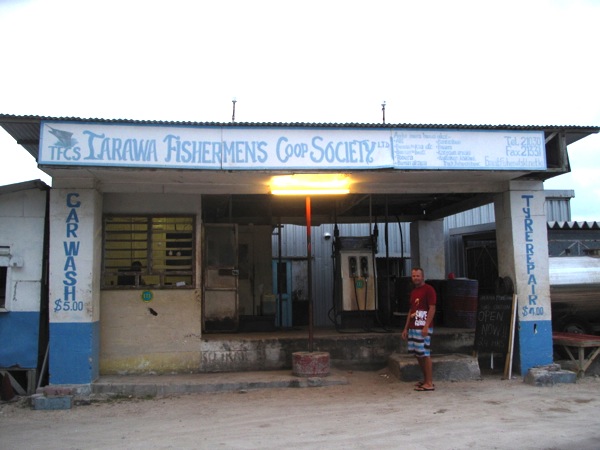
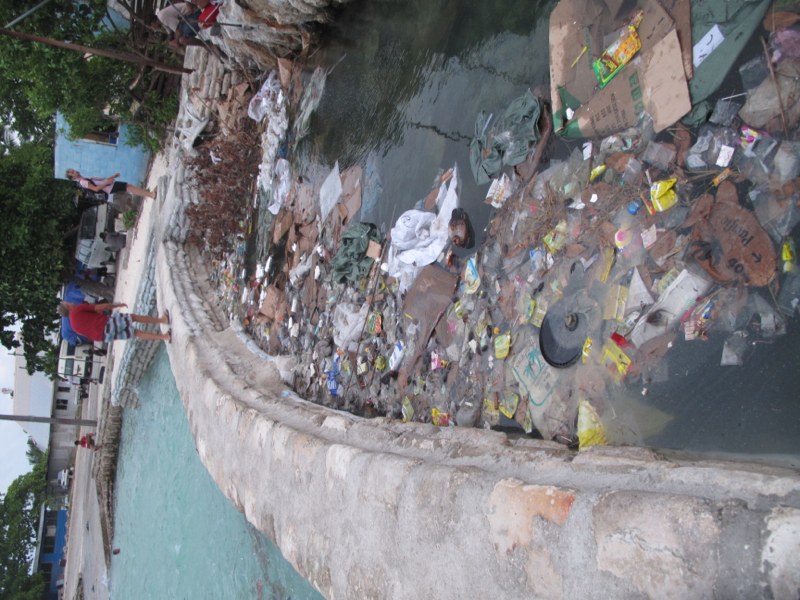
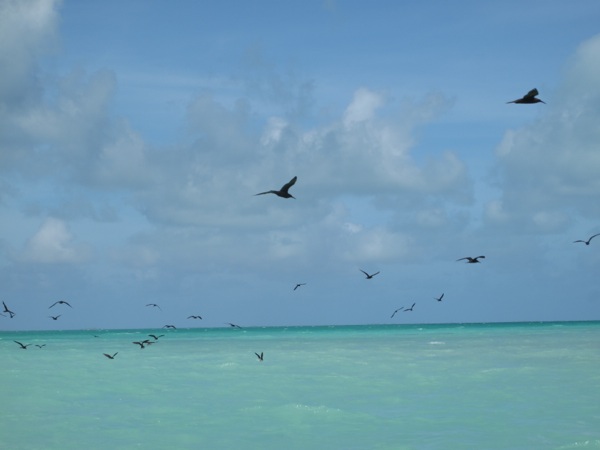
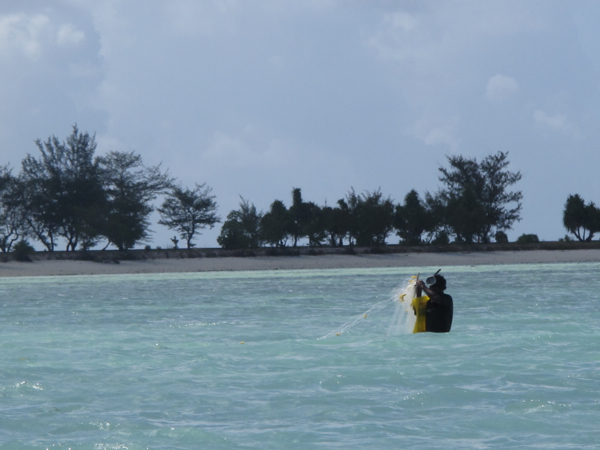
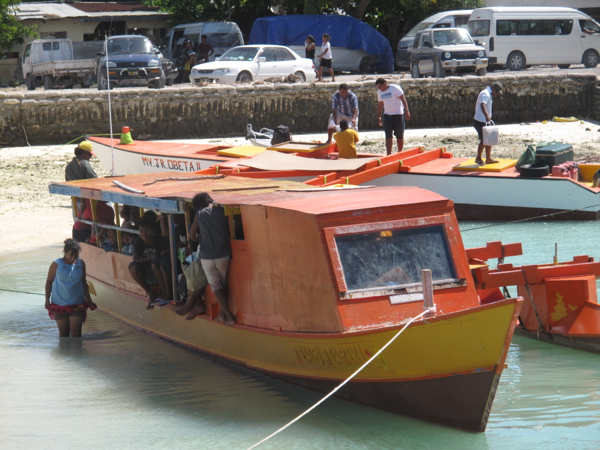
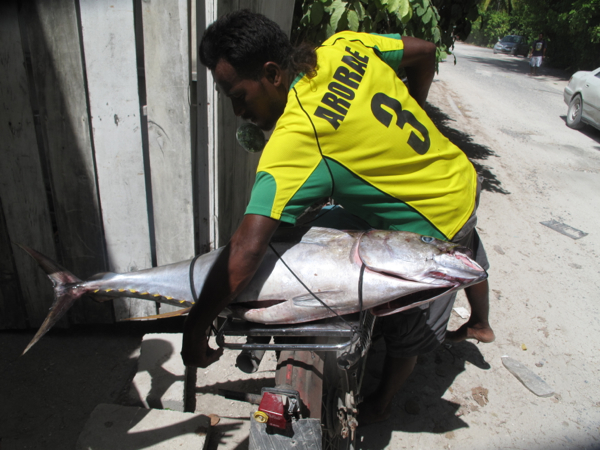
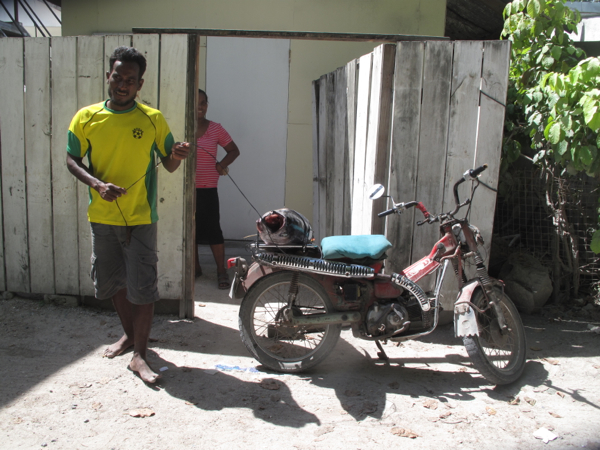
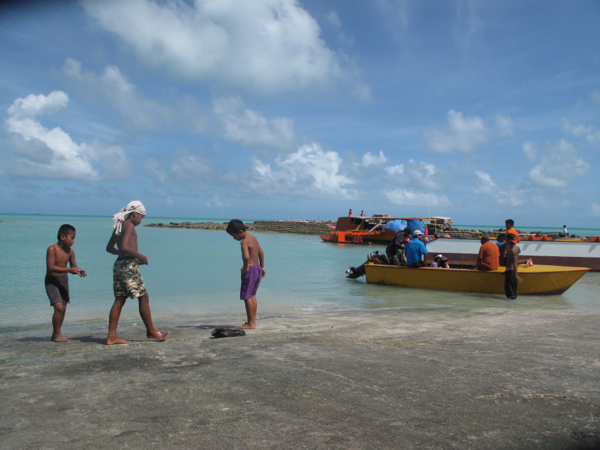
Leave a Reply